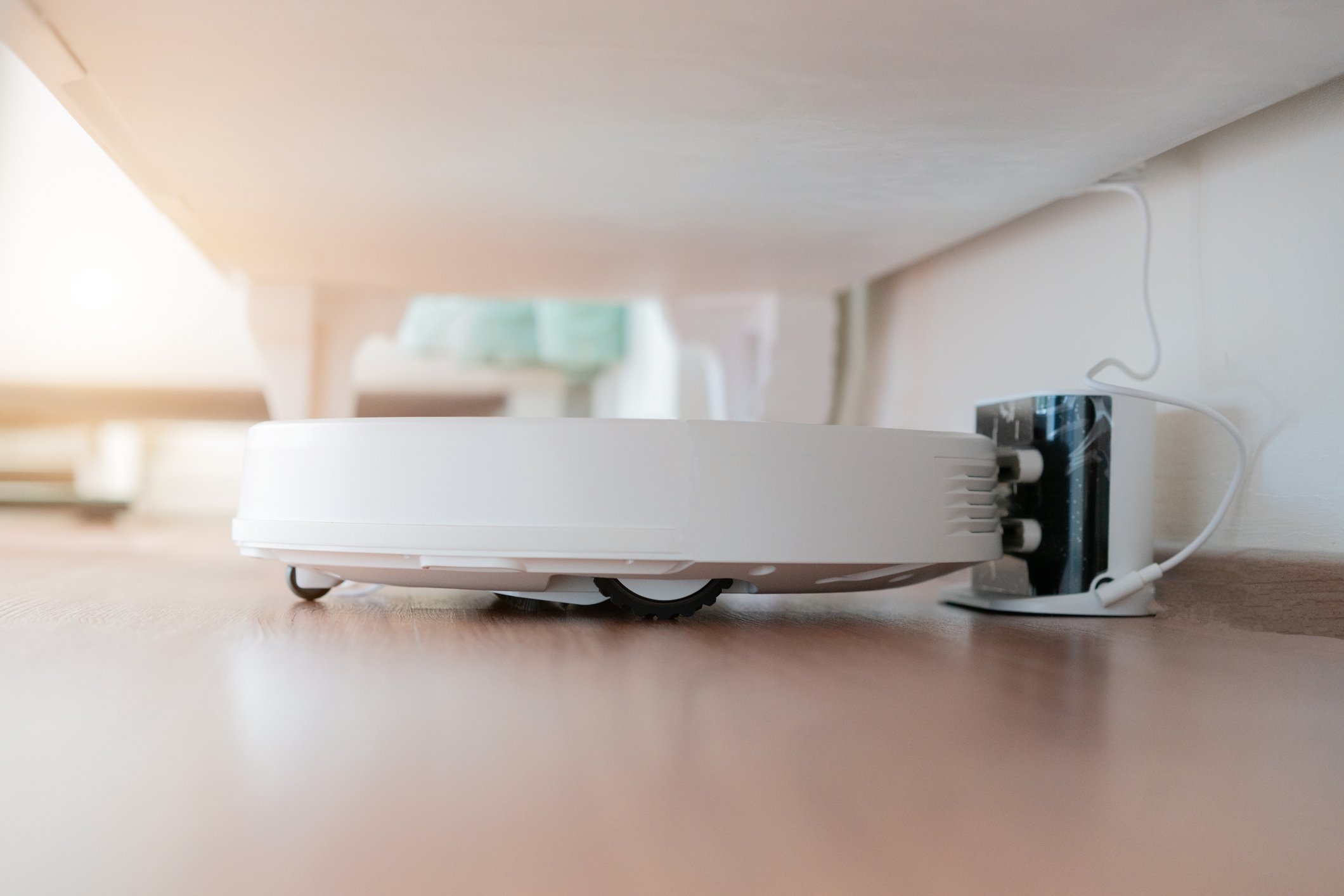If you're an investor based in America -- even if you are a defense investor based in America -- chances are you've never heard of QinetiQ Group (QQ 0.55%). Or if you have heard of QinetiQ, you know it primarily as the archrival to one of America's more famous (if tiny) defense concerns: iRobot (IRBT +0.00%), against which QinetiQ competes in the sale of military robots to America's armed forces.
iRobot's Packbot. Photo: Wikimedia Commons.
But either way, whatever you think you know (or don't know) about QinetiQ... it's all about to become obsolete.
Fish or cut bait, you say? Hack away!
The reason why everything that everyone thinks they know about QinetiQ is about to become wrong, is contained in a short news item reported yesterday on DefenseNews.com. To wit, QinetiQ has just agreed to sell its U.S. services business to privately held American defense contractor The SI Organization.
This sale is likely to result in an upfront payment to QinetiQ of $165 million, with a subsequent earn-out of up to $50 million -- $215 million in total. In exchange for this cash, QinetiQ will part with a U.S. services business that produced $797 million in revenue for it in 2013 -- but that experienced a steep falloff in revenues (down 11%) and that is now apparently losing QinetiQ money, rather than earning it.
As CEO Leo Quinn explained in a statement, "[The] sale of the US Services division represents the best route to maximise value for shareholders from these assets while retaining a significant footprint in North America for The Group through our Global Products Division and Cyveillance business." As of today, the company is hoping to finalize the sale sometime this current fiscal second quarter 2014.
What QinetiQ's holding onto
Post-divestiture, QinetiQ will retain its valuable Europe, Middle East, and Africa (EMEA) services business, as well as its global products business, which builds the Talon robots that compete with iRobot's own PackBot and other military war bots.

QinetiQ's Talon II bomb disposal bot. Photo: Wikimedia Commons.
QinetiQ will also hang onto the U.S. "Cyveillance" cyber security business that it acquired in 2009 -- but by its own admission, this Cyveillance has "yet to prove that [it] can achieve significant scale."
While QinetiQ does not break out revenues for Cyveillance in particular, the lack of "significant scale" there suggests that the vast majority of QinetiQ's U.S. services revenue is getting tossed overboard. And this is the crucial point: DefenseNews.com doesn't point this out, but in shrinking by close to $800 million in revenue, QinetiQ is effectively cutting itself in half. Post-merger, the company will be pulling in perhaps $1.2 billion in revenues.
But that's OK.
The price of success
It's OK because, even if QinetiQ is cutting its business in half, it's keeping the "good" half. According to data from S&P Capital IQ, even before QinetiQ's U.S. business began losing money, it was already the company's weakest link. QinetiQ's second biggest business by revenues, U.S. services was a distant third (out of three) in profits. But relieved from this deadweight, the rest of QinetiQ should be free to shine.
The company's EMEA business, for example, generated a 14.3% operating profit margin for QinetiQ last year. QinetiQ will also retain its even more profitable (23.9% operating profit margin) Global Products business. Between these two businesses, QinetiQ should probably be left with $1.3 billion in revenues, earning better than 17% profit margins thereon, post-divestiture. By way of comparison, all of iRobot's revenues for the past year added up to less than $500 million -- and the company earned an operating profit of less than 7% on them.
What it means to investors
Even after shedding the bulk of its U.S. defense business, QinetiQ's revenue stream will be more than twice the size of its U.S. archrival's -- and with these revenues being close to three times more profitable per dollar collected, QinetiQ will have the potential to produce net profits close to six times as great as what iRobot produces. Yet investors today value QinetiQ at a market capitalization barely twice that of iRobot's $1.2 billion market cap. (This may be because investors are valuing iRobot more as a consumer electronics company than as a defense contractor. But even then -- revenues are revenues, from wherever they come. And in iRobot's case, the company's flagship home robots division actually earns a slightly smaller gross margin on its products than does its defense and security robots division!)
Whether American investors will recognize the disconnect in valuations, and rush to buy QinetiQ shares over iRobot's, is anybody's guess. But my guess is this: If iRobot is fairly valued today, and if somebody doesn't bid up QinetiQ shares to a valuation commensurate with iRobot's, then QinetiQ will soon become buyout bait for a bigger defense contractor that will.







